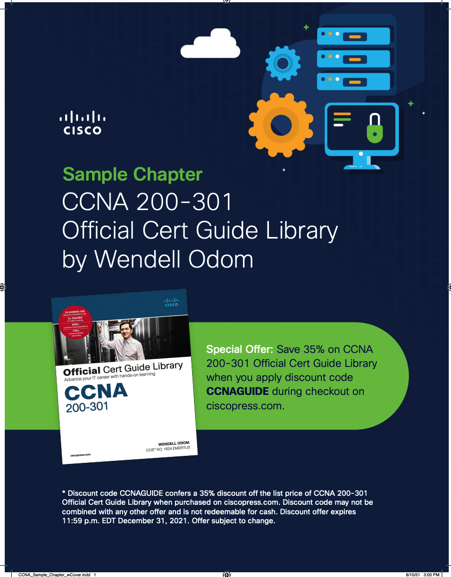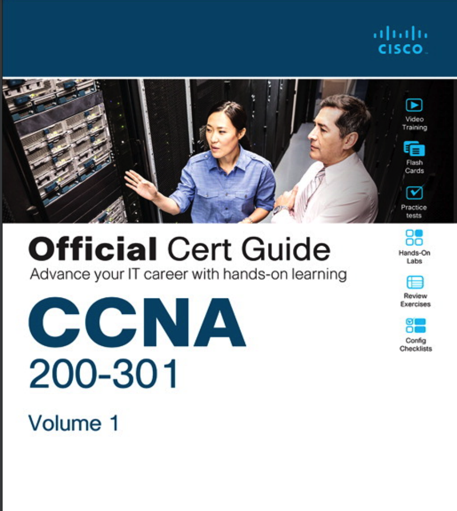Exclusive Courses | Cisco CCNA 200-301 WAN Tutorial
Classes of WAN - Study CCNA
- Experienced instructors with industry expertise
- Access to official guides and materials
- Covers all exam topics thoroughly
- Flexible study at your own pace
- Support for exam service
- Anytime access to study resources
What you'll learn
Training Course Outline
Cisco CCNA 200-301 WAN
1. NAT (Part 1)
2. Static NAT
3. NAT (part 2)
4. Dynamic NAT
5. WAN Architectures
6. GRE Tunnels
7. Virtualization & Cloud
8. Oracle VirtualBox
9. Wireless Fundamentals
10. Wireless Architectures
11. Wireless Security
12.LIVE: Let's learn Junos (Juniper Networks) with Kelvin!
Training Options
Self Paced Learning
- Lifelong access to high-quality content
- Curated by industry experts
- Customized learning progress
- 24/7 learner assistance and support
- Follow the latest technology trends
Exam Dump
- 100% Real Exam Practice Tests
- 100% Verified Exam Questions & Answers
- 100% Guarantee Passing Rate
- Average 7 Days to Practice & Pass
Description
Level up your career in IT with this video-based online training course designed to help you master foundational networking knowledge-WAN and succeed on the CCNA 200-301 exam.
Pre-requisites
basic understanding of Networking devices Any server knowledge/ already CCNA will be an adantage but not cumpulsory

CCNA 200-301 Official Cert Guide
When preparing for your certification exam, use the CCNA 200-301 Official Cert Guide Library—the only self-study resource approved by Cisco.

CCNA 200-301 Official Cert Guide Library
CCNA 200-301 Official Cert Guide Library is a comprehensive review and practice package for the latest CCNA exam and is the only self-study resource approved by Cisco.
CCNA Exam & Certification
What is CCNA certification?
CCNA (Cisco Certified Network Associate) is Cisco's entry-level certification, validating skills in networking fundamentals, IP services, security, automation, and IT infrastructure. It prepares professionals to install, configure, and troubleshoot Cisco devices like routers and switches. Targeted at network administrators and engineers, CCNA serves as a gateway to advanced certifications (e.g., CCNP) and emphasizes practical expertise in modern network environments, including cloud and IoT integration. Globally recognized, it aligns with industry standards, ensuring holders can manage LAN/WAN architectures and adapt to evolving technologies. Regular updates keep the certification relevant, reflecting Cisco's ecosystem and real-world networking demands.
What is the WAN Architecture?
WAN (Wide Area Network) Architecture refers to the design of networks connecting geographically dispersed locations, often using leased lines, MPLS, or VPNs. Key components include routers, switches, and protocols like BGP for routing. In CCNA, WAN topics cover SD-WAN (software-defined WAN), which centralizes control and optimizes traffic via cloud-based management. Understanding WAN architecture is critical for configuring remote site connectivity, ensuring reliability, and troubleshooting latency or bandwidth issues. Cisco's curriculum emphasizes WAN technologies like PPP, QoS, and hybrid networks, enabling professionals to build scalable, secure connections across enterprises or cloud environments.
Path to a CCNA Certification
- Prerequisites: Basic networking knowledge (recommended, not mandatory).
- Study: Use Cisco's official resources (e.g., CCNA 200-301 guides), online courses, and hands-on labs with tools like Packet Tracer.
- Topics: Master network fundamentals, IPv4/IPv6, VLANs, wireless, security basics, and automation.
- Exam: Pass the 120-minute CCNA 200-301 exam, featuring simulations, MCQs, and drag-and-drop tasks.
- Practice: Configure real or virtual Cisco devices to reinforce routing, switching, and troubleshooting skills.
- Certification: Upon passing, earn CCNA and pursue roles like Network Technician or Administrator, or advance to higher certifications.
How do you prepare for the CCNA exam?
- Structured Learning: Follow Cisco's exam blueprint and enroll in courses (e.g., Cisco NetAcad).
- Hands-On Labs: Use Packet Tracer or physical labs to simulate network setups, VLANs, and routing protocols.
- Practice Exams: Test knowledge gaps with platforms like Boson ExSim, focusing on time management.
- Study Groups: Join forums (e.g., Reddit's r/ccna) for tips and peer support.
- Flashcards: Reinforce concepts like OSI model, subnetting, and CLI commands.
- Review Weak Areas: Prioritize automation, security, and WAN topics. Consistent practice and real-world application ensure exam readiness and long-term retention of networking principles.